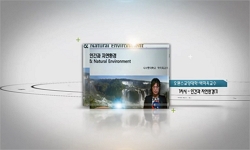정도의 차이가 있을 수 있지만, 현대의 교육이 목표로 하고 있는 점들은 모두 인간성 함양이라는 본질적인 측면을 기초로 삼고 있으며, “올바른 가치관 함양”이라는 지향점을 내포하고 있...
http://chineseinput.net/에서 pinyin(병음)방식으로 중국어를 변환할 수 있습니다.
변환된 중국어를 복사하여 사용하시면 됩니다.
- 中文 을 입력하시려면 zhongwen을 입력하시고 space를누르시면됩니다.
- 北京 을 입력하시려면 beijing을 입력하시고 space를 누르시면 됩니다.

『논어』 군자론의 이론구조와 초등 도덕교육적 함의 = Theoretical structure and implications for elementary school moral education of the 'wise man theory(君子論)' of the Analects
한글로보기https://www.riss.kr/link?id=A107950516
- 저자
- 발행기관
- 학술지명
- 권호사항
-
발행연도
2021
-
작성언어
-
-
주제어
『논어』 ; 군자 ; 君子 ; 이론구조 ; 도덕교육 ; 인 ; 仁 ; The Analects ; wise man ; theoretical structure ; moral education ; benevolence ; ren
-
등재정보
KCI등재
-
자료형태
학술저널
- 발행기관 URL
-
수록면
31-58(28쪽)
-
KCI 피인용횟수
0
- 제공처
-
0
상세조회 -
0
다운로드
부가정보
국문 초록 (Abstract)
도덕철학으로서의 위상을 굳건히 유지하고 있는 유학(儒學) 사상은 ‘군자(君子)’로 표방되는 인격을 갖춘 지성인의 도덕적 실천과 사회적 역할에 관하여 주목하고 있다. 군자(君子)는 전통시대 도덕교육의 목표이자 이상향이며, 군자가 되기 위한 실천 공부는 도덕교육의 내용이자 방법적 원리이기도 하다.
『논어』의 군자론은 인(仁) 중심의 가치·덕목 체계 기본구조, 지행일치(知行一致)의 교수·학습 선순환구조, 수기치인(修己治人)의 가치관계 확장 중층구조 등으로 이론구조를 파악할 수 있다. 아울러 이러한 군자론은 선(善)을 지향하는 인간의 도덕적 본성, 변화의 가능성을 전제로 한 수양과 공부, 자각과 실천을 중심으로 하는 인격교육 등의 측면에서 초등 도덕과 교육에 시사하는 바가 있다.
따라서 전통의 현대적 계승이라는 측면에서 『논어』 사유의 핵심인 인(仁)을 중심으로 하여, 도덕적 성찰을 이끌어내는 지혜에 주목하고, 현재라는 맥락 속에서 관련된 실천적 가치·덕목을 끊임 없이 재구성할 필요가 있다.
정도의 차이가 있을 수 있지만, 현대의 교육이 목표로 하고 있는 점들은 모두 인간성 함양이라는 본질적인 측면을 기초로 삼고 있으며, “올바른 가치관 함양”이라는 지향점을 내포하고 있다. 특히, 도덕과 교육을 중심으로 하는 학교교육에서는 인간 본연의 도덕성 이해와 자각 그리고 이를 바탕으로 하는 도덕적 사고와 판단 능력의 함양을 통하여 자연스럽게 자신의 삶에서 도덕적 실천이 이행되고 확장될 수 있도록 교육적 노력을 지속적으로 기울이고 있다.
도덕철학으로서의 위상을 굳건히 유지하고 있는 유학(儒學) 사상은 ‘군자(君子)’로 표방되는 인격을 갖춘 지성인의 도덕적 실천과 사회적 역할에 관하여 주목하고 있다. 군자(君子)는 전통시대 도덕교육의 목표이자 이상향이며, 군자가 되기 위한 실천 공부는 도덕교육의 내용이자 방법적 원리이기도 하다.
『논어』의 군자론은 인(仁) 중심의 가치·덕목 체계 기본구조, 지행일치(知行一致)의 교수·학습 선순환구조, 수기치인(修己治人)의 가치관계 확장 중층구조 등으로 이론구조를 파악할 수 있다. 아울러 이러한 군자론은 선(善)을 지향하는 인간의 도덕적 본성, 변화의 가능성을 전제로 한 수양과 공부, 자각과 실천을 중심으로 하는 인격교육 등의 측면에서 초등 도덕과 교육에 시사하는 바가 있다.
따라서 전통의 현대적 계승이라는 측면에서 『논어』 사유의 핵심인 인(仁)을 중심으로 하여, 도덕적 성찰을 이끌어내는 지혜에 주목하고, 현재라는 맥락 속에서 관련된 실천적 가치·덕목을 끊임 없이 재구성할 필요가 있다.
다국어 초록 (Multilingual Abstract)
The Confucian ideology, which firmly maintains its status as a moral philosophy, is mainly discussed about the moral practice and social role of intellectuals with a personality expressed as a ‘wise man(君子)’. A wise man is the goal and ideal of moral education in the traditional era, and the practice study to become a wise man is the content and methodological principle of moral education.
The theory of the wise man of 'The Analects' can be understood in terms of the basic structure of values and virtues centered on benevolence(仁), a virtuous cycle of teaching and learning based on 'unity of knowledge and practice(知行一致)', and a multi-layered structure of value relationship expansion based on to 'govern others by self-discipline(修己治人)'. In addition, such a wise man theory has implications for elementary school morality and education in terms of the moral nature of human beings oriented to goodness, cultivation and study based on the possibility of change, and personality education centered on awareness and practice.
Therefore, in terms of the modern succession of tradition, it is necessary to pay attention to the wisdom that leads to moral reflection, focusing on the 'benevolence(仁)', which is the core of the thought of the Analects, and to constantly reconstruct the relevant practical values and virtues in the context of the present.
Although there may be differences in degree, the goals of modern education are all based on the essential aspect of cultivating humanity, and contain the goal of “cultivating the right values.” In particular, in school education centered on morali...
Although there may be differences in degree, the goals of modern education are all based on the essential aspect of cultivating humanity, and contain the goal of “cultivating the right values.” In particular, in school education centered on morality and education, educational efforts are continuously being made so that moral practice can be naturally implemented and expanded in one's life through understanding and awareness of human's inherent morality and cultivating moral thinking and judgment ability based on it. continuously leaning.
The Confucian ideology, which firmly maintains its status as a moral philosophy, is mainly discussed about the moral practice and social role of intellectuals with a personality expressed as a ‘wise man(君子)’. A wise man is the goal and ideal of moral education in the traditional era, and the practice study to become a wise man is the content and methodological principle of moral education.
The theory of the wise man of 'The Analects' can be understood in terms of the basic structure of values and virtues centered on benevolence(仁), a virtuous cycle of teaching and learning based on 'unity of knowledge and practice(知行一致)', and a multi-layered structure of value relationship expansion based on to 'govern others by self-discipline(修己治人)'. In addition, such a wise man theory has implications for elementary school morality and education in terms of the moral nature of human beings oriented to goodness, cultivation and study based on the possibility of change, and personality education centered on awareness and practice.
Therefore, in terms of the modern succession of tradition, it is necessary to pay attention to the wisdom that leads to moral reflection, focusing on the 'benevolence(仁)', which is the core of the thought of the Analects, and to constantly reconstruct the relevant practical values and virtues in the context of the present.
참고문헌 (Reference)
1 朱熹, "論語集註"
2 성백효, "論語集註" 傳統文化硏究會 1996
3 "論語"
4 교육과학기술부, "초등학교 교육과정 해설(Ⅲ)-국어, 도덕, 사회"
5 송영민, "초등 도덕과 기본적 교수⋅학습 과정 및 단원 체제 개선 방안" 한국철학사연구회 (60) : 307-339, 2019
6 이승철, "인성교육을 위한 전통 유학교육의 현대화 방안" 한국철학사연구회 (57) : 183-207, 2018
7 이상익, "유교의 忠恕論과 自由主義" 한국철학회 (80) : 5-30, 2004
8 강봉수, "유교 도덕교육론" 원미사 2001
9 최복희, "유가철학에서의 덕론" 한국가톨릭철학회 (9) : 143-172, 2007
10 이승철, "왕수인의 내적 자각에 관한 교육적 이해" 성균관대학교 대학원 2015
1 朱熹, "論語集註"
2 성백효, "論語集註" 傳統文化硏究會 1996
3 "論語"
4 교육과학기술부, "초등학교 교육과정 해설(Ⅲ)-국어, 도덕, 사회"
5 송영민, "초등 도덕과 기본적 교수⋅학습 과정 및 단원 체제 개선 방안" 한국철학사연구회 (60) : 307-339, 2019
6 이승철, "인성교육을 위한 전통 유학교육의 현대화 방안" 한국철학사연구회 (57) : 183-207, 2018
7 이상익, "유교의 忠恕論과 自由主義" 한국철학회 (80) : 5-30, 2004
8 강봉수, "유교 도덕교육론" 원미사 2001
9 최복희, "유가철학에서의 덕론" 한국가톨릭철학회 (9) : 143-172, 2007
10 이승철, "왕수인의 내적 자각에 관한 교육적 이해" 성균관대학교 대학원 2015
11 R. Straughan, "도덕철학과 도덕교육" 교육과학사 1996
12 유병열, "도덕과교육론" 양서원 2003
13 교육부, "도덕과 교육과정(교육부 고시 제2015-74호[별책 6])"
14 김영호, "논어의 종합적 고찰" 심산 2003
15 유교문화연구소, "논어(論語)" 성균관대학교 출판부 2006
16 지준호, "논어 군자론의 인격교육적 함의" 한국인격교육학회 15 (15): 129-146, 2021
17 지준호, "공자(孔子)의 실천적 덕론(德論) - 인(仁)과 예(禮)를 중심으로" 한국철학사연구회 (41) : 223-246, 2014
18 钟小明, "朱熹哲学中的“仁包四德”论" (5) : 2013
19 서근식, "朱子의 「仁說」에 대한 體系的 理解" 동양고전학회 (52) : 373-400, 2013
20 台灣師大圖書館, "寒泉】古典文獻全文檢索資料庫"
21 "孟子"
22 김용재, "孔子의 道德論 「論語」에 나타난 道德觀을 중심으로" 한국철학사연구회 (15) : 323-357, 2004
23 지준호, "君子의 人格과 公共性" 한국철학사연구회 (26) : 249-271, 2009
24 김용재, "仁의 도덕 개념과 유교 윤리학적 함의 - 『論語』를 중심으로 -" 동양철학연구회 34 : 213-237, 2003
25 勞思光, "中國哲學史(Ⅰ)" 三民書局 1981
26 김용재, "『論語集解』와 『論語集註』의 註釋 比較를 통해 본 『論語』 經文의 理解 [Ⅰ] -「學而」를 중심으로-" 한국한문교육학회 (31) : 497-532, 2008
27 이경남, "『論語』에 나타난 小人에 관한 硏究" 동양철학연구회 32 : 153-182, 2003
28 이상호, "『論語』 克己復禮의 도덕교육적 含意에 관한 연구" 한국윤리교육학회 (33) : 111-127, 2014
29 송갑준, "『논어』의 군자상과 그 현대적 의미" 대동철학회 (32) : 1-25, 2005
30 이동숙, "『논어』에 나타난 군자론의 도덕교육적 함의 연구" 서울교육대학교 교육대학원 2010
31 조성열, "『논어』, 『맹자』에 나타난 군자 소인, 대인 소인 연구" 34 : 2006
32 이철승, "『논어』 속 군자관의 논리 구조와 정치의식" 동양고전연구소 (29) : 7-33, 2013
33 지준호, "‘從心所欲、不踰矩’를 통해 본 공자의 인성론" 동양고전학회 (39) : 209-242, 2010
34 朱熹, "(세주 완역)논어집주대전 : 동양철학의 향연(전4권)" 한울아카데미 2013
동일학술지(권/호) 다른 논문
-
- 영산대학교 동양문화연구원
- 정성식 ( Jeong Seong-sik )
- 2021
- KCI등재
-
삼민주의(三民主義)와 삼균주의(三均主義)에 나타난 민(民) 의식 연구
- 영산대학교 동양문화연구원
- 조덕제 ( Cho Deok Je )
- 2021
- KCI등재
-
인공지능으로 유교성인 만들기 ― 한국철학의 정초를 위한 실험철학적 시론 ―
- 영산대학교 동양문화연구원
- 정재현 ( Chong Chaehyun )
- 2021
- KCI등재
-
- 영산대학교 동양문화연구원
- 徐玲 ( Xu Ling )
- 2021
- KCI등재




 KCI
KCI KISS
KISS







